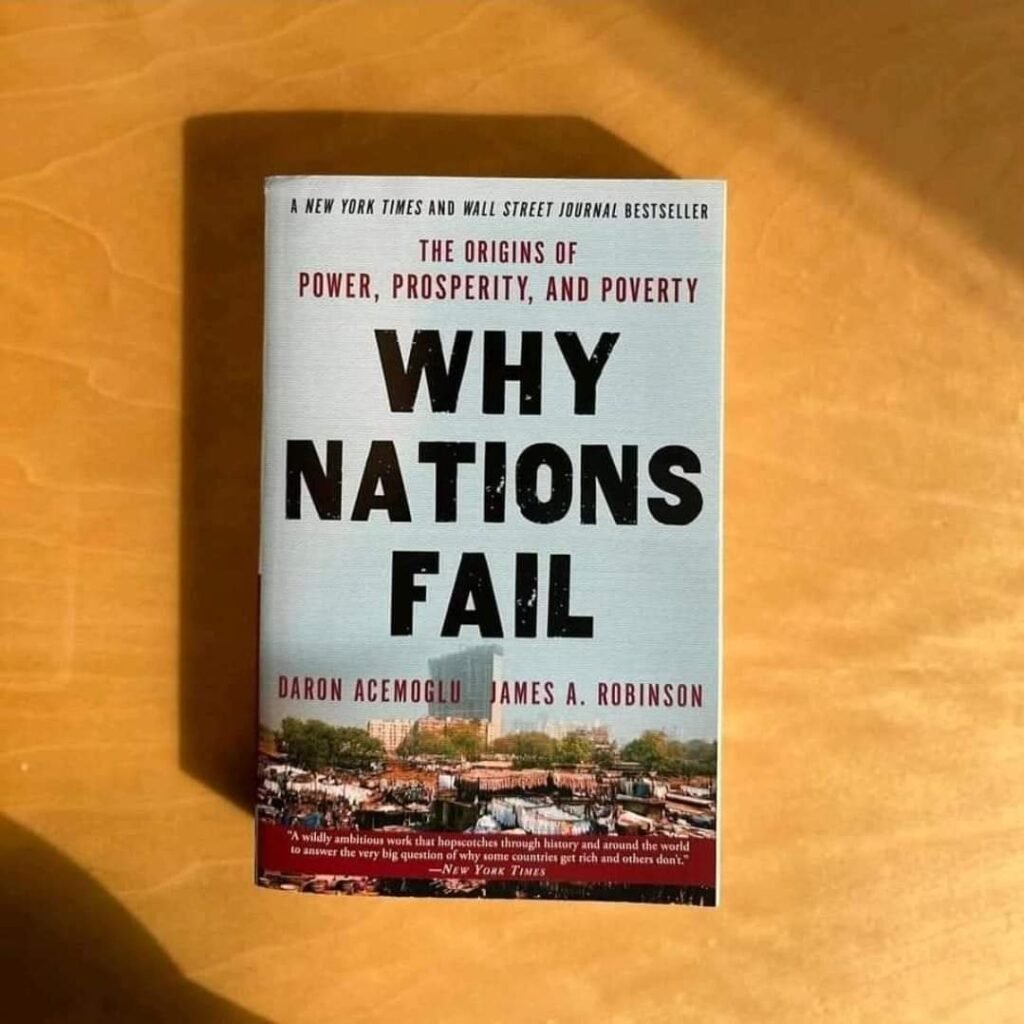#books
#economics
#publicaffairs
Why Nations Fail
by Daron Acemoglu and James A. Robinson.
The book received international attention for having raised the argument that the success or failure of nations is primarily due to the nature of their political and economic institutions.
The two economists were awarded the 2024 Nobel Prize in Economics for the path breaking work.
1. Inclusive Institutions Drive Prosperity.
Inclusive political and economic institutions are crucial for sustained economic growth. These institutions allow broad participation in economic and political life, encourage innovation, and create opportunities for people from all walks of life.
2. Extractive Institutions Lead to Poverty.
In contrast, extractive institutions concentrate power and wealth in the hands of a few. These institutions limit opportunities for most people, stifle innovation, and lead to stagnation and poverty.
3. Political Power Shapes Economic Outcomes.
Economic institutions are shaped by political power. When political institutions are inclusive, they create economic systems that benefit the majority. When power is concentrated in the hands of elites, the economy is structured to serve their interests.
4. Historical Contingency Matters.
Historical events and “critical junctures” (e.g., wars, revolutions, colonisation) can set nations on different trajectories by altering their institutions, for better or worse.
5. The Role of Innovation and Technology.
Nations thrive when they embrace technological and institutional innovation. Extractive regimes, however, often resist change to maintain the status quo, which can lead to economic decline.
6. Persistence of Institutions.
Institutions tend to persist over time. Countries with extractive institutions often remain trapped in a cycle of poverty and corruption because elites resist reforms that would diminish their power.
7. Geography and Culture Are Less Important.
While geography and culture can play a role, they are not the primary determinants of a nation’s success or failure. Instead, political and economic institutions are the key drivers.
The book emphasises that for nations to succeed, they must develop inclusive institutions that distribute power and wealth more broadly and encourage innovation and growth.

